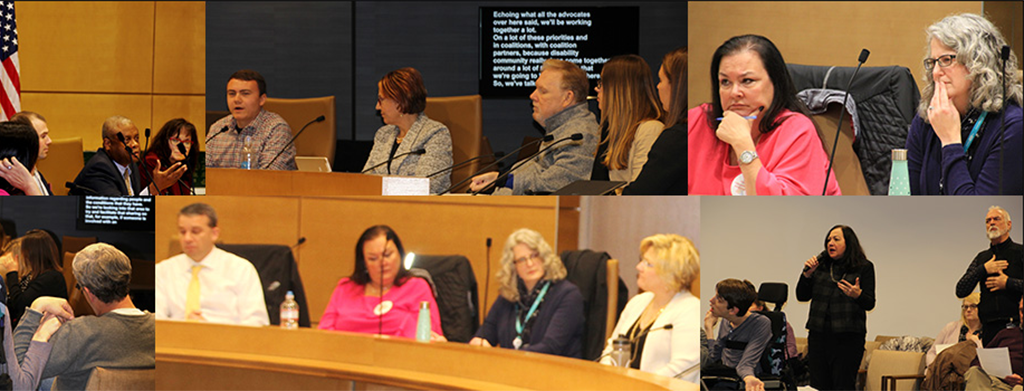
The Minnesota Council on Disability welcomes the 2019 Legislative Session and is working diligently to advance the civil rights of Minnesotans with Disabilities.
The Council analyzes legislative initiatives and advises how proposed policies will impact the disability community. The goal is to ensure that policymakers understand the effects of their decisions on Minnesotans with disabilities. With the latest CDC study reporting 26% of US adults as having a disability, this is a critical and fast-growing demographic in our state and country.
In December, the Council adopted its 2019 public policy agenda (PDF). The document serves to guide the public policy work that the agency aims to advance. The Council supports policies that promote Access, Equity and Independence so Minnesotans with disabilities can live, work and play in their communities.
There are four critical legislative issues that the Council aims to advance in 2019:
Make our state parks inclusive and accessible to all Minnesotans. Our 75 state parks and recreation areas have barriers which prevent people with disabilities from a full park experience. In 2018, $500,000 was secured in bonding funds to bring park facilities up to the Americans with Disabilities Act standards. DNR’s Accessible Outdoors Project is now developing project designs to make Fort Snelling and William O’Brien State Parks inclusive and accessible for all Minnesotans. The Council supports bonding funds in 2019 to develop designs for an additional state park.
Establish accessible standards within new Assisted Living licensure. Minnesota is one of the few states that does not license Assisted Living facilities. These facilities are regulated under a variety of building code classifications based on number and type of residents. This often results in limited accessibility options for assisted living residents. New assisted living licensure should expand accessible facility standards.
Establish CAV policy standards that include Level IV autonomy. Autonomous Vehicles have tremendous potential to promote the independence and equity of people with disabilities to live, work, and play in the community of their choice. Level IV autonomy requires no steering wheel and no license drivers which will ensure people with disabilities have maximum access to CAV technology.
Increase equitable, on-demand transportation services for Minnesotans with disabilities. Transportation Network Companies (TNC) hold broad challenges and benefits for people with disabilities to maintain choice and independence. The Council supports policy solutions that ensure that Uber, Lyft, and other TNC companies fulfill their legal obligation to provide equitable services to all.
The Council is eager to promote and advance the civil rights of Minnesotans with Disabilities. To keep up with our public policy work, please follow MCD on Facebook and Twitter (@MSCOD). Weekly legislative updates will also be published on our website under the Public Policy section. Any policy related inquiries can be directed to MCD’s Public Policy Director, Kody Olson at kody.olson@state.mn.us.
Read our 2019 Legislative Updates